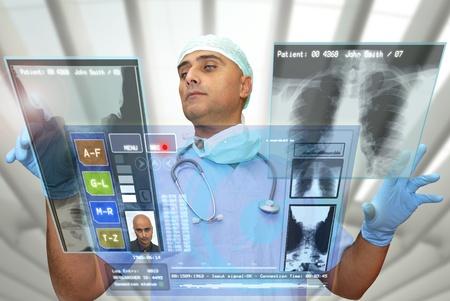
Artificial Intelligence has received tremendous attention for its ability to transform how health care uses Electronic Health Records. EHR are already an invaluable tool for organizing a patient’s demographic information and their past and current medical data. EHR can support physician decision-making, help increase the efficiency of administrative processes, and make clinical data available to researchers for advancing clinical trials and improving health outcomes metrics. But what are the risks and rewards of using such powerful technology?
“The way we currently work with EHR has created a multitude of unintended consequences,” writes Kasvhi Gupta, master’s student at the School of Public Health. According to Gupta, patients are dissatisfied with providers spending increasing time in front of a screen instead of engaging them directly, providers are experiencing burnout in greater numbers than ever before, and much of the data collected is unusable because it is inconsistently organized across different health systems.
